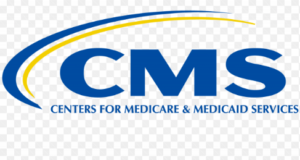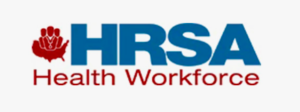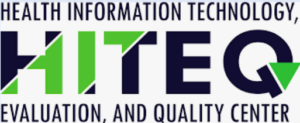- CMS: Medicare and Medicaid Programs: CY 2026 Payment Policies Under the Physician Fee Schedule and Other Changes to Part B Payment and Coverage Policies; Medicare Shared Savings Program Requirements; and Medicare Prescription Drug Inflation Rebate Program
- Public Inspection: CMS: Medicare and Medicaid Programs: CY 2026 Payment Policies under the Physician Fee Schedule and Other Changes to Part B Payment and Coverage Policies; Medicare Shared Savings Program Requirements; and Medicare Prescription Drug Inflation Rebate Program
- CMS: Medicare Program; Implementation of Prior Authorization for Select Services for the Wasteful and Inappropriate Services Reduction (WISeR) Model
- Public Inspection: CMS: Medicare Program: Implementation of Prior Authorization for Select Services for the Wasteful and Inappropriate Services Reduction Model
- CMS: Secretarial Comments on the CBE's (Battelle Memorial Institute) 2024 Activities: Report to Congress and the Secretary of the Department of Health and Human Services
- HHS: Patient Protection and Affordable Care Act: Marketplace Integrity and Affordability
- Public Inspection: HHS: Patient Protection and Affordable Care Act: Marketplace Integrity and Affordability
- Increased Risk of Cyber Threats Against Healthcare and Public Health Sector
- HRSA Announces Action to Lower Out-of-Pocket Costs for Life-Saving Medications at Health Centers Nationwide
- Announcing the 2030 Census Disclosure Avoidance Research Program
- Eight Hospitals Selected for First Cohort of Rural Hospital Stabilization Program
- CMS: Medicare Program; Hospital Inpatient Prospective Payment Systems for Acute Care Hospitals and the Long-Term Care Hospital Prospective Payment System and Policy Changes and Fiscal Year 2026 Rates; Requirements for Quality Programs; and Other Policy Changes; Correction
- CMS: Medicare Program; Hospital Inpatient Prospective Payment Systems for Acute Care Hospitals and the Long-Term Care Hospital Prospective Payment System and Policy Changes and Fiscal Year 2026 Rates; Requirements for Quality Programs; and Other Policy Changes; Correction
- CMS: Medicare and Medicaid Programs; Contract Year 2026 Policy and Technical Changes to the Medicare Advantage Program, Medicare Prescription Drug Benefit Program, Medicare Cost Plan Program, and Programs of All-Inclusive Care for the Elderly; Correction
- CMS: Medicare and Medicaid Programs; Contract Year 2026 Policy and Technical Changes to the Medicare Advantage Program, Medicare Prescription Drug Benefit Program, Medicare Cost Plan Program, and Programs of All-Inclusive Care for the Elderly; Correction
CMS Releases New Emergency Medical Treatment and Labor Act (EMTALA) Complaint Module
 Last week, the Centers for Medicare & Medicaid Services (CMS) announced that individuals now have the option to file an Emergency Medical Treatment and Labor Act (EMTALA) complaint directly with CMS if they believe their EMTALA rights have been violated by a hospital emergency department. CMS’ new process is in addition to the traditional process of contacting state survey agencies. EMTALA is a federal law that helps prevent any hospital emergency department that receives Medicare funds from refusing to treat patients. The new form is the latest in a series of new resources from CMS to help educate the public about EMTALA.
Last week, the Centers for Medicare & Medicaid Services (CMS) announced that individuals now have the option to file an Emergency Medical Treatment and Labor Act (EMTALA) complaint directly with CMS if they believe their EMTALA rights have been violated by a hospital emergency department. CMS’ new process is in addition to the traditional process of contacting state survey agencies. EMTALA is a federal law that helps prevent any hospital emergency department that receives Medicare funds from refusing to treat patients. The new form is the latest in a series of new resources from CMS to help educate the public about EMTALA.
Take the HRSA Grantee Satisfaction Survey
 Each program director of active HRSA grants has received an invitation to take our new and improved Grantee Satisfaction Survey. With the highest possible response rate through June 10, we can pinpoint crucial areas for action. For general questions about the survey, contact HRSAGranteeSurvey@hrsa.gov
Each program director of active HRSA grants has received an invitation to take our new and improved Grantee Satisfaction Survey. With the highest possible response rate through June 10, we can pinpoint crucial areas for action. For general questions about the survey, contact HRSAGranteeSurvey@hrsa.gov
Analyzing the Latest Alcohol Death Data and Change Over the Last Decade

The health policy nonprofit, KFF, used data from CDC WONDER to examine trends in death caused by alcohol from 2012-2022. The report finds that deaths were highest among people aged 45 to 64, males, people living in rural areas, and American Indian/Alaska native people. Rural areas experienced faster growth in alcohol deaths, driven by sharp rises during the pandemic.
HRSA Substance Use Disorder Treatment and Recovery Loan Repayment Program Launches

– June 27. HRSA’s Bureau of Health Workforce provides up to $250,000 in loan repayment for behavioral health clinicians, support workers, and clinical support staff trained in substance use disorders. According to data from the Rural Health Research Gateway, “as of March 31, 2023, there were 4,040 Mental Health Professional Shortage Areas in rural areas, with 2,141 practitioners needed to remove the designations.”
Mpox Cases on the Rise in Pennsylvania

Mpox cases continue to rise in Pennsylvania and the surrounding states. The Pennsylvania Department of Health (DOH) is encouraging providers to continue to screen all patients with suspected mpox for travel to the Democratic Republic of the Congo (DRC) or recent contact with someone who has traveled to DRC. Providers should be aware of the more stringent infection control measures required for Clade I mpox and are encouraged to follow the CDC guidelines for infection prevention and control for mpox. Outreach, education, testing and vaccination continue to be important. According to DOH, Hispanic men are significantly impacted and there is need for these interventions among the migrant worker population. See mpox toolkit for more information on mpox and promotional materials.
Clinical Quality Measures for Eligible Professionals: 2024 Update Released

A new spreadsheet developed by the HITEQ Center provides a crosswalk of Clinical Quality Measures and their electronic specifications as defined in the 2023 update for Eligible Professionals (Clinicians). Fields include the crosswalk of measures with related information about CMS, NQF, and CMS Quality or MIPS ID, and Telehealth Eligibility, as well as inclusion in HRSA BPHC Uniform Data System (UDS) CY2024, Million Hearts, CMS Quality Payment Program (QPP) – APM Performance Pathway (APP) Measures, 2024 APM Performance Pathway: CMS Web Interface Measure Benchmarks for CMS ACO Shared Savings Program, CMS Core Set (Child Core Set Medicaid / CHIP): HEDIS Specified, CMS Core Set (Adult Core Set Medicaid): HEDIS Specified, Core Quality Measures Collaborative (ACO / Primary Care). Links are included throughout. Download the spreadsheet here.
Medicare Telehealth Legislation Takes Another Step Forward

Last week, the House Energy & Commerce Health Subcommittee advanced a two-year extension of Medicare telehealth payment policies to the full Energy & Commerce Committee. The bill, H.R. 7623, the Telehealth Modernization Act of 2024, includes a two-year extension of current policies and would also ensure that Medicare reimburses telehealth visits at the same rate as in-person visits. This payment parity language, along with the rest of the policy extensions, passed the subcommittee by a 21-0 bipartisan vote. The full Committee will consider the bill in the coming months.
New Study Provides Summary on Rural Behavioral Health Workforce Retention

According to a new study by the Provider Retention and Information System Management (PRISM), behavioral health professionals who had an experience with rural health care during their training are more likely to work and stay in rural areas when they enter practice. PRISM’s Behavioral Health study that was published by The Journal of Rural Health is now available here. This study assesses the amount of exposure to care in rural underserved communities that behavioral health clinicians received during training and how it impacted their success and retention in rural safety net practices.
America is Experiencing More than a Red-Blue Divide

If you’re serving multi-generations like most Community Health Centers are, you’ll want to look at the charts in Washington strategist Bruce Mehlman’s Six-Chart Sunday newsletter. The infographics highlight some startling differences between older and younger generations across an array of topics, including values, economics, party identification, and happiness.
Appeals Court Approves Drugmakers’ Federal 340B Contract Pharmacy Restrictions
 On May 21, the Federal Appeals Court ruled that the 340B statute doesn’t prohibit drugmakers from placing any conditions on distribution of 340B drugs to covered entities. However, the ruling left open the possibility that more stringent conditions by drugmakers could be illegal. NACHC is analyzing the appeal and its impact on FQHCs. Click here to read the appeal.
On May 21, the Federal Appeals Court ruled that the 340B statute doesn’t prohibit drugmakers from placing any conditions on distribution of 340B drugs to covered entities. However, the ruling left open the possibility that more stringent conditions by drugmakers could be illegal. NACHC is analyzing the appeal and its impact on FQHCs. Click here to read the appeal.
